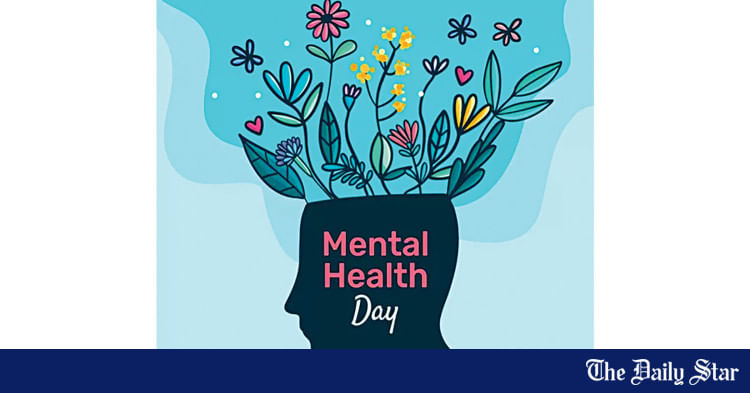Mental health in Bangladesh remains a topic many find difficult to discuss even in 2025, entangled in social stigma and widespread misconceptions.
Issues related to mental health are often viewed through the lens of superstition, leaving patients vulnerable and struggling in silence.

On top of all that, systemic gaps and a lack of proper healthcare support — particularly emergency services — also persist, meaning even those who seek help often struggle to receive timely and adequate treatment.
Take the case of Khadiza Begum, 35, from Pabna’s Bhangura upazila. After her divorce, she suffered from mental illness for four years without any medical attention.
Believing she was a victim of “black magic”, her family took her to local quacks, which worsened her condition.
She was only recently brought to Pabna Mental Hospital.
“She wasn’t treated early because there is no emergency mental healthcare in her area, which led her to become violent,” said Dr Masud Rana, a senior psychiatrist at the hospital. “If she doesn’t improve, we’ll have to admit her.”
Doctors, social workers, and patients’ relatives say the absence of an emergency response system continues to cripple mental healthcare across the country.
“A vast number of patients cannot get minimum treatment early on. Consequently, their conditions often fail to improve properly,” Dr Rana added.
On Tuesday, social workers brought an unidentified young woman from Thakurgaon to Pabna Mental Hospital, but she was refused admission due to a lack of identification.
“We don’t know how to provide her with better care now,” said Atiur Rahman Atik, one of the social workers.
Hospital Superintendent Dr Ahia Kamal said hospital rules require a proper address and identification for admission. He added that the 500-bed hospital has no emergency medical service, forcing indoor patients needing urgent care to go to government hospitals.
Despite having 26 of 31 sanctioned doctors, the hospital struggles to meet the growing demand.
“The government plans to upgrade the hospital to 1,000 beds under a proposed project with a research centre and international-standard treatment facilities, which could improve services,” Dr Kamal said.
The hospital is also facing an acute shortage of medicines. Only six types of anti-psychotic drugs and one mood stabiliser are currently available, far short of the minimum requirement.
“I brought a patient from Bogura, but we couldn’t get the prescribed medicines for free,” said Md Hasan, a patient’s relative.
Officials report that only six types of anti-psychotic medicines are available for indoor patients — short of the minimum required 10 — and only one mood stabiliser is in stock.
“There has been no supply for the last few months, so we are treating admitted patients with the existing stock,” said a hospital official, wishing anonymity.

